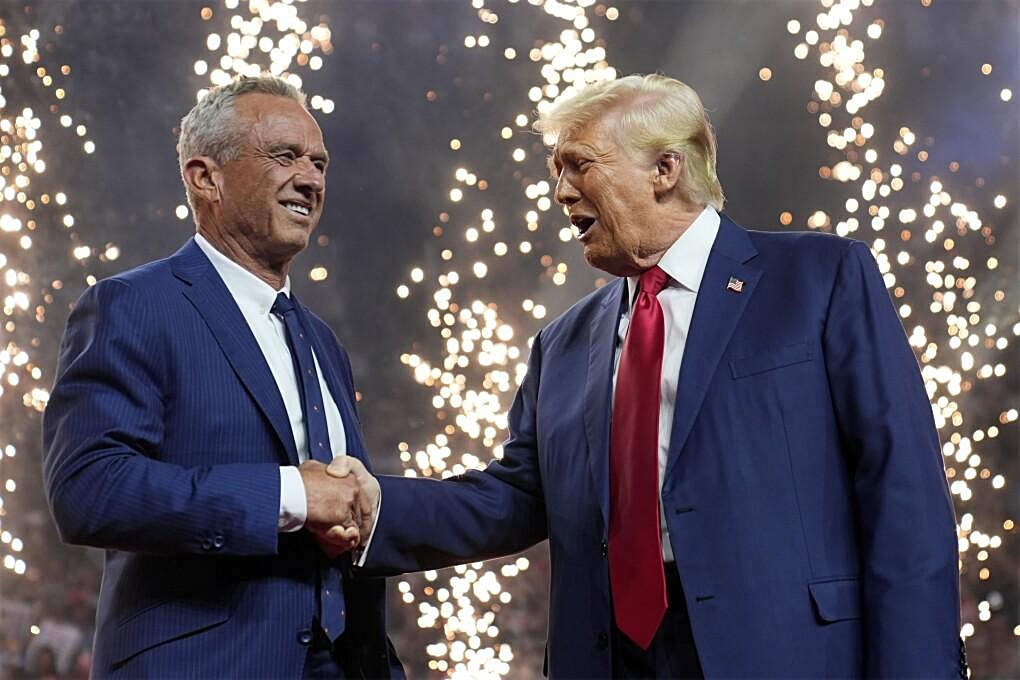In a recent rally, former President Donald Trump revealed his plan to appoint Robert F. Kennedy Jr. to a new federal panel on chronic disease if he is reelected. Recognizing Kennedy’s decades-long advocacy for the health of families and children, Trump expressed his admiration for Kennedy’s work with Children’s Health Defense.
Trump highlighted the key issues emphasized in Kennedy’s campaign, stating that he would establish a panel of top experts to collaborate with Kennedy in investigating the causes behind the increase in chronic health problems and childhood diseases such as autoimmune disorders, autism, obesity, and infertility.
Furthermore, Trump made a promise that if reelected, he would release all currently classified files related to the assassination of Kennedy’s uncle, President John F. Kennedy.
During the rally, Kennedy received a warm welcome from the crowd, with thunderous applause and the song “My Hero” by the Foo Fighters playing in the background. Trump later remarked that he had never received such a enthusiastic response when introducing a guest.
In his first public appearance following his withdrawal from the election race, Kennedy disclosed that he had been in contact with Trump since the failed assassination attempt on the former president in mid-July. While acknowledging disagreement on some matters, Kennedy emphasized their shared goals of combating corruption in federal medicine and food regulation agencies, ending neoconservative influence on U.S. foreign policy, and addressing government censorship.
Kennedy posed important questions to the crowd, emphasizing the need for a president who upholds American freedoms, protects against totalitarianism, prioritizes the health of children, eliminates harmful chemicals from our food, and ensures regulatory agencies remain free from corporate corruption. He attributed these goals to his conversations with President Trump.
Kennedy’s announcement serves as the latest development in an already tumultuous election season, although it came as no surprise. Despite initial strong performances in polls, Kennedy’s support has waned in recent months, currently standing between 3 and 7 percent.
Speaking from Phoenix, Arizona, on August 23, Kennedy expressed his doubts about achieving electoral victory due to what he perceived as relentless censorship and media control. With this realization, he could no longer ask his dedicated staff, volunteers, and donors to continue their efforts without a viable path to the White House.
While the impact of Kennedy’s withdrawal on the race is yet to be determined, early indications suggest it may benefit Trump. Polls indicate that Trump holds a slight lead among voters considering alternative candidates. However, uncertainty remains, with 45 percent of these voters either unsure or refusing to answer, making it ambiguous whether Kennedy’s departure will ultimately favor Trump or his opponent, Harris.
Internal polling conducted by the Trump campaign reveals that Trump has an advantage over Harris among Kennedy supporters in seven crucial swing states: Arizona, Georgia, Michigan, North Carolina, Nevada, Pennsylvania, and Wisconsin. Nonetheless, approximately 15 to 20 percent of voters in these critical states remain undecided.

